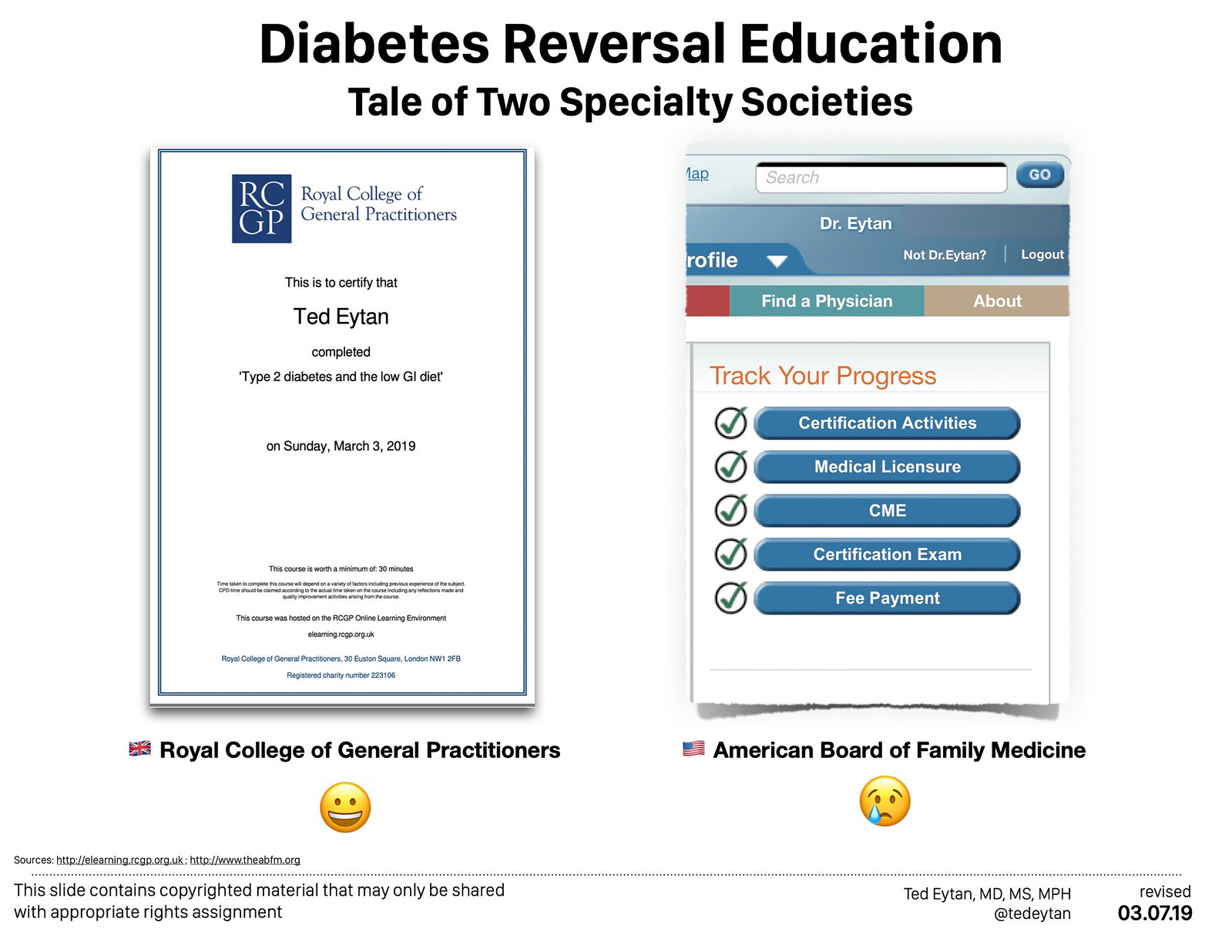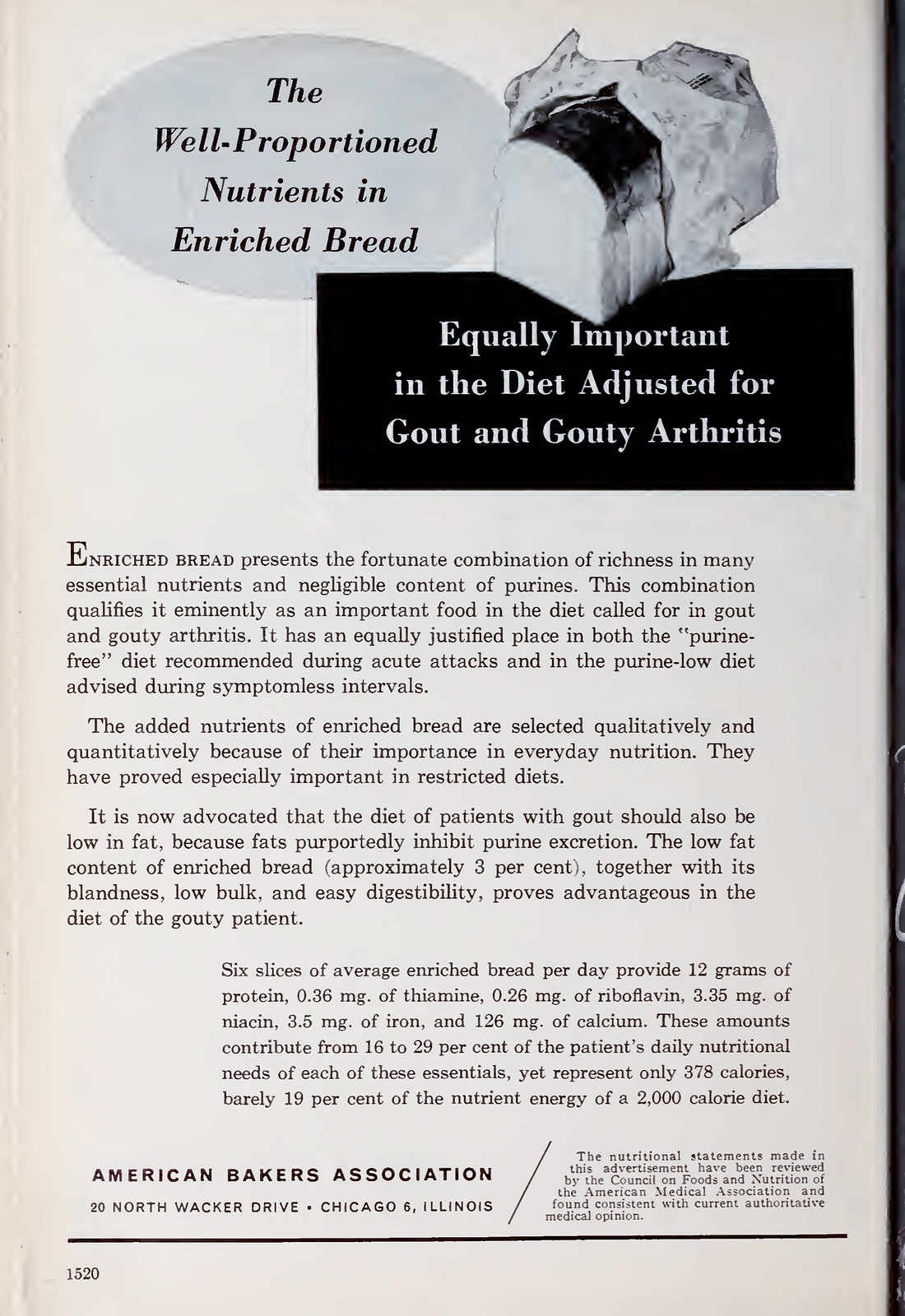
As discussed in @DrAseemMalhotra’s testimony to the UK Parliament last week: In June, 2018, the Royal College of General Practitioners (@rcgp) published an e-learning course “Type 2 diabetes and the low GI diet” with lead author Dr. David Unwin (@lowcarbGP):
Type 2 diabetes is an increasingly common and progressive disease, the progression of which can sometimes be paused or even reversed using a low glycaemic-index (GI diet). Many patients with type 2 diabetes are on multiple drugs, yet are still not well controlled. This module describes the use of a low GI diet as an adjunct treatment for diabetes, using a case study of a real patient registered at the author’s practice. The physiology and evidence behind a low glycaemic-index diet are described, as well as how to implement it in real life.Type 2 diabetes and the low GI diet
I completed this course as an American specialist in Family Medicine and found it compelling and informative, in a short period of course completion (less than 30 minutes).
What most/all physicians appreciate is the care and rigor that must go into producing continuing education for a physician audience, and I could tell that Unwin and collaborators worked to ensure content is based in science, of the kind we were never taught in medical school (or taught incorrectly)
@DietDoctor1 The Glycaemic Index helps predict how much glucose starchy carbs produce ?eggs or full fat yoghurt a better breakfast for #T2D pic.twitter.com/DKu77lqUH3
— Dr David Unwin (@lowcarbGP) November 12, 2016
They included a patient story, which even for me was stunning in a good way.
My very different experience recertifying as an American family medicine specialist
At the same time, I recertified as a family medicine specialist at the end of 2018 and was disappointed to find learning modules riddled with inaccuracies and old information around the topics of diabetes prevention, diabetes reversal (no information), and nutrition. The modules allow learners to leave comments, and I found I was not the only physician disappointed in the content. This is my comment on one of the evaluation questions of one of the modules:
“Did you notice any problems with the content of the knowledge self-assessment activity? – Yes”
“Extremely out of date, especially the nutrition questions, which still mention “calories in, calories out” (no evidence that this valid) and focus on low-fat diets, which again have been proven unhealthy and without any evidence of support. I would overhaul this entire section.”
In my glass ¾ fully self, I was delighted to find fellow family medicine specialists question the information and embrace curiosity (it’s what we’re trained to do).
I am supportive of Maintenance of Certification – it’s about the content, not the concept
This is not a blog post decrying or diminishing the importance of maintenance of certification (MOC) for family medicine specialists.
As I wrote in this three part series on what it means to be a family medicine specialist (because apparently the public doesn’t know what we are), I am proud of the fact that we were the first medical specialty to mandate ongoing certification to keep current. Unlike other specialties which “grandparented” their members, the founders of family medicine guaranteed their obsolescence the day they created us.
I look forward to American specialty societies following the lead of the RCGP in producing learning modules for diabetes prevention, remission, reversal. Dr. Unwin and his patient’s goals are the same as ours – enjoy disability-free life-years with as low a pharmaceutical burden as possible and as high a enjoyment of life’s opportunities as possible.
Physicians have been receiving nutrition education all along, just not unconflicted information
When people say “physicians don’t receive nutrition education,” I challenge that statement, because I’ve found that we do receive education, just not from credible sources. A quick browse through the pages of the 1957 New York Academy of Medicine (!) tells the story. It’s been like this for over 60 years.

Here’s a gallery of additional advertisements from 1957 that will gently blow your mind.
1 Comment
BOY it discourages conversation with the “leave a reply” box is way down below related content. But again I found it.
MY JAW LITERALLY DROPPED when I clicked to the Flickr gallery: “three essential steps” to a correct eating plan includes…. METHAMPHETAMINE??? Then pentobarbitol, to guard against getting excited?? (While on meth, perhaps???) What a formulation…. I have to ask, is S. E. Massengill the maker of Massengill douche products??
And I just noted “Meth, for its anorexigenic effects” – to induce anorexia?? Oh, that means speed makes you not hungry. Well THAT’s a breakthrough.
AND WTF, on the next ad, THORAZINE FOR MANAGEMENT OF SKIN DISORDERS????
Somehow this time trip reminds of the NBME’s 100th annual meeting, where I got to speak. The event was wonderfully organized into eras; in a 1970s segment they showed an early example of videos used for training and testing young docs. In one, a nervous wife (with husband) sat at the doc’s desk and pulled out a pack of cigarettes – Salems, I think. The doc reached into his drawer and pulled out an ashtray.